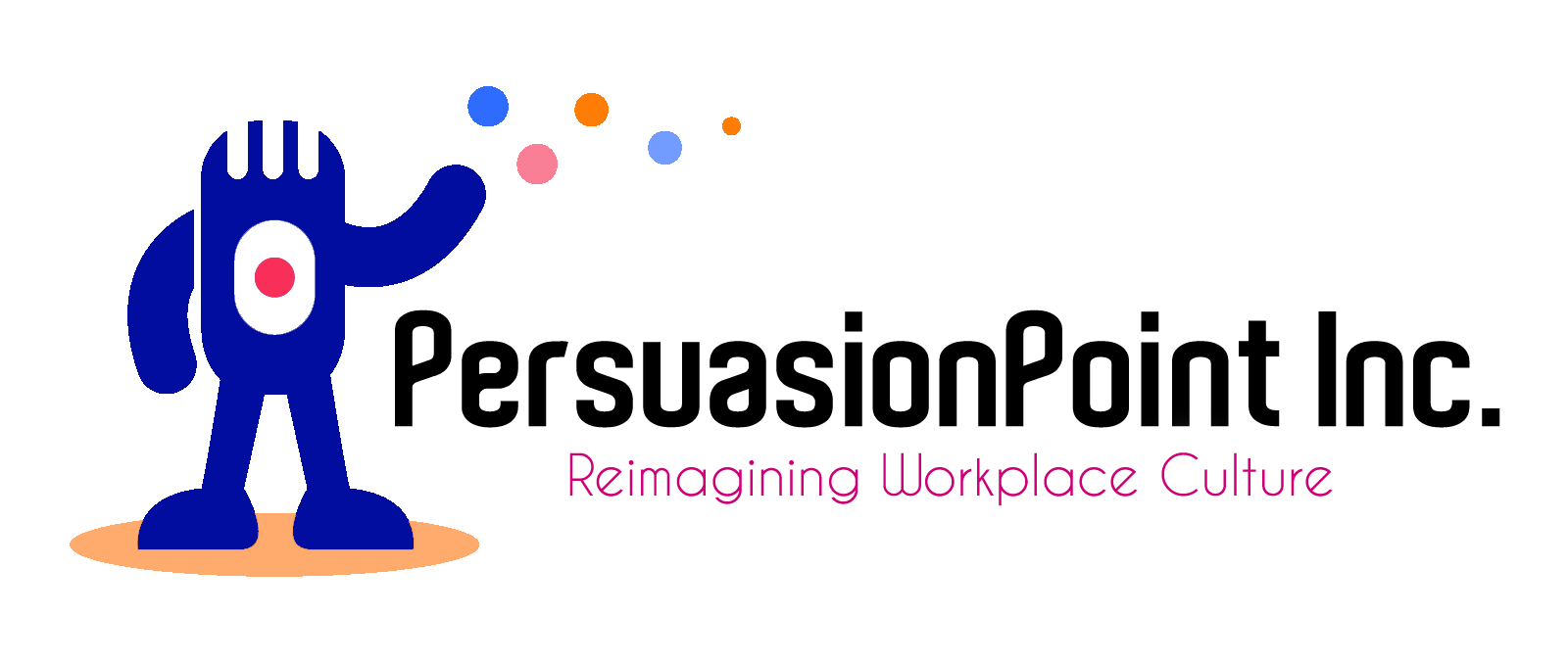My Quest to Revolutionize Workplace Culture I am on a mission to transform workplace culture. After 25 years of being a “I resolve workplace drama” is my standard response when people ask me what I do for a living. They’re usually intrigued by my description, and I inevitably find them talking my ear off about workplace conflict – whether it’s drama with their boss, between coworkers, or company-wide chaos.
Over the years I’ve observed countless ways that companies and their leaders cause or worsen workplace drama (see my article on that here). Unfortunately, I see employees as the leading cause of an equal number of issues in the workplace. Here are eight of the most common mistakes I’ve continually witnessed employees make which inevitably lead to drama and misery at work, along with some tips on avoiding these common pitfalls.
1. You Have RDS (“Responsibility Deficit Syndrome”)
RDS is the shortcut we use at our house for people who blame everyone and everything else for their woes, never looking inward to identify their own mistakes, take responsibility, and learn from the experience. If this describes you, then I’m willing to bet you’re deep in workplace drama (in fact, I bet you’re deep in life drama too).
Warning signs
You find yourself being frequently blamed for issues that are clearly not your fault (don’t be so sure). You’re always on the defense, quick to offer up excuses or justifications for your actions or to place blame elsewhere. You don’t have many friends at work and people tend to steer clear of you.
Stop the bleeding
We’re all human and we all make mistakes. Next time you find yourself on the defensive, be honest with yourself and your colleagues about what went wrong. Maybe you forgot to file an extension, or that important client email ended up in your drafts folder instead of your sent mail. Your coworkers will respect you more if you’re straightforward with them – and it will go a long way towards building rapport with your team.
2. You Equate “Unfair” With “Illegal”
Life is unfair. Cliché, yes, but it’s something that folks seem to forget when they’re on the receiving end of unfair results. If you’re being treated unfairly at work, take the time to accurately define what exactly is happening so that you don’t fall into the trap of labeling an unfair action as illegal.
Warning signs
You’re quick to throw around phrases like discrimination, retaliation, harassment, or hostile work environment – serious accusations that will undoubtedly put your employer on the defensive. You’ve been at the center of several HR investigations, but none have been ruled in your favor.
Stop the bleeding
Think before you act (I know, another cliché). Did your boss really discriminate against you by giving you an inaccurate and unfair evaluation, or was the evaluation simply inaccurate or incomplete (which might be unfair, but likely not unlawful)? Once you’ve identified the true nature of the problem, be precise and direct when you report the behavior. Don’t let unfair behavior go, but realize that misusing legal terms will simply compel your employer to put on compliance blinders and sidestep any proactive resolutions that might actually make a difference in your work environment.
One side note: If your company believes that unfair behavior doesn’t need to be addressed, look for a new job at a company that gets it.
3. You Take Things Personally
“It’s not personal, it’s just business.” This is more than a line from The Godfather, it’s corporate reality. Even if you work at a company with a family-like culture, decisions are typically made to move business forward, not individuals. This might include decisions to downsize, reorganize, eliminate certain positions, or change job descriptions. It’s not personal, so don’t react like it is.
Warning signs
You find yourself openly disagreeing with the decisions of your organization’s leaders even when they don’t apply only to you, or maybe you stew over a missed raise or promotion.
Stop the bleeding
Rather than react like the sky is falling, use your energy to figure out whether the decision is reasonable and in line with your own goals. If it pertains to you specifically and you find it unreasonable, make your case rationally and in persuasive business-speak – if you were denied a raise, present independent research that shows you’re underpaid, for example. If it’s a company-wide decision that you disagree with, see if you can provide your input (hopefully before the change is implemented). In most cases though, the decision will move forward with or without your agreement – and it usually has nothing to do with you. If the change is inevitable, focus your energy on making the new reality successful.
4. You’re The Common Denominator
We’ve all met people who say they’re overworked but underpaid and underappreciated. We know these people well because they complain about their job all the time. The problem (in addition to being a downer) is that these people have typically held seven jobs in ten years and it’s the same story every time – the only thing that changes is the company name.
Warning signs
No matter where you work, it seems like your boss and coworkers don’t appreciate you, you’re frequently misunderstood and criticized, you’re always being labelled negative, and your coworkers and boss don’t get along with you.
Stop the bleeding
If this is you, it’s high time you realize that, while the name of the company, boss, or colleagues might change, your perception of being the victim does not: you are the common denominator in this never-ending tale of woe. Own up to your role in this harmful pattern you’ve established, and start changing your ways.
5. You Enjoy Being a Martyr
Choosing unwisely is a reality of human nature. We’ve all made irrational decisions even when there’s a better option right in front of us – think of that friend who stays with a bad partner thinking s/he will change despite ample proof to the contrary.
Warning signs
Are you staying in the same job because you fear wasting everything you’ve invested up to this point (money, time, energy)? Maybe you think that if you stick it out, things will get better – your boss will become kinder and fairer, your coworker won’t annoy you anymore, your assignments will suddenly become fulfilling.
Stop the bleeding
In life and at work, sometimes there just isn’t a good option – only bad and worse options. Leaving your job might seem unattractive because it’s a bad choice (you might have to start over, learn new skills, face financial instability), but staying is likely a worse option. Change can be scary, but there comes a time when we must cut our losses and move on. Carpe diem.
6. You Have An “Us” Versus “Them” Mentality
Trust, or the lack of it, is at the root of this problem. Employees increasingly see management as the embodiment of corporate greed, always trying to stick it to the little guy. It’s nearly impossible to avoid workplace friction if actions and words are viewed through this “I’m right so you’re wrong” lens.
Warning signs
You’re constantly finding something to hold against your boss: she never seems to appreciate your hard work, her expectations are too high, she’s hypercritical of every move you make, she only cares about the bottom line, etc.
Stop the bleeding
Your animosity towards your boss is making you miserable, not her. Remember that company leaders are human too, and chances are she’s just trying to do her job as best as she can. Take the time to have a conversation with her – you just might find that you share a similar vision when it comes to your work.
7. You Create Your Own Negative Reality
“No one asks me to lunch,” an employee once told me who felt that she was being excluded by her colleagues. After speaking to her coworkers, I learned that they had invited her out to eat every day of her first month at the company. After getting a consistent “no,” they simply stopped asking.
Warning signs
You stick to yourself at work, don’t reciprocate on social invitations, and prefer to work through lunch than grab a bite with your coworkers. You invite people to treat you like an outsider, so they do.
Stop the bleeding
Don’t become a self-fulfilling prophecy. Project the reality you want, rather than the one you fear. Do you want your colleagues to become friends? Then invest energy into those relationships. As cliché as it may sound, I’ve seen time and again that having negative thoughts about work, your coworkers, or your boss almost always results in those thoughts becoming reality.
8. You Focus On Others’ Actions Instead of Your Reactions
We all like to be right, but as the old saying goes, sometimes it’s better to be happy than to be right. In some instances, you might have the opportunity to affect or even change someone’s attitude or behavior. However, in most cases, your coworker, boss, or leader will behave in ways that you not only dislike, but that, if you really think about it, you have absolutely no control over.
Warning signs
You find yourself trying to change your colleagues’ behaviors or idiosyncrasies. Maybe you spend more energy trying to teach other people the right way to do a task instead of accomplishing the work on your own plate.
Stop the bleeding
You may not have control over the way your colleague arrives late to team meetings every week without fail, but you do have control over your reaction to that behavior. Getting angry about his tardiness won’t change anything, and frankly it’s out of your hands if you’re not his direct supervisor. This doesn’t mean you allow people to walk all over you, but it does mean that you’ll be better served if you save your energy and learn to accept the things that are out of your control. Make the best of situations that aren’t ideal, and strike a compromise that allows you to get work done without making you want to rip your hair out.
If any of these traits resonate with you, you probably have some work to do. The good news is that by reflecting on these qualities, you can identify ways you might be (unconsciously) contributing to workplace drama – and you can choose to alter your behavior to help create a more positive, upbeat, and drama-free workplace.

About PersuasionPoint
Patti Perez is founder and CEO of PersuasionPoint, a modern-day consulting firm dedicated to teaching leaders and teams how to create and sustain healthy, equitable and inclusive workplace cultures. Patti is the best-selling, award-winning author of The Drama-Free Workplace (Wiley 2019), and draws from the book’s themes to provide practical, authentic, and action-oriented solutions to help companies achieve true diversity and equity, and to create environments of belonging and inclusion.
Patti and the team provide services specifically tailored to address workplace struggles with recruiting, retaining, promoting and fully valuing diverse employees – including consulting, leadership training, and boot camps for diverse attorneys who are emerging leaders.
Contact Patti here or email her directly at Patti@PersuasionPoint.com.
















